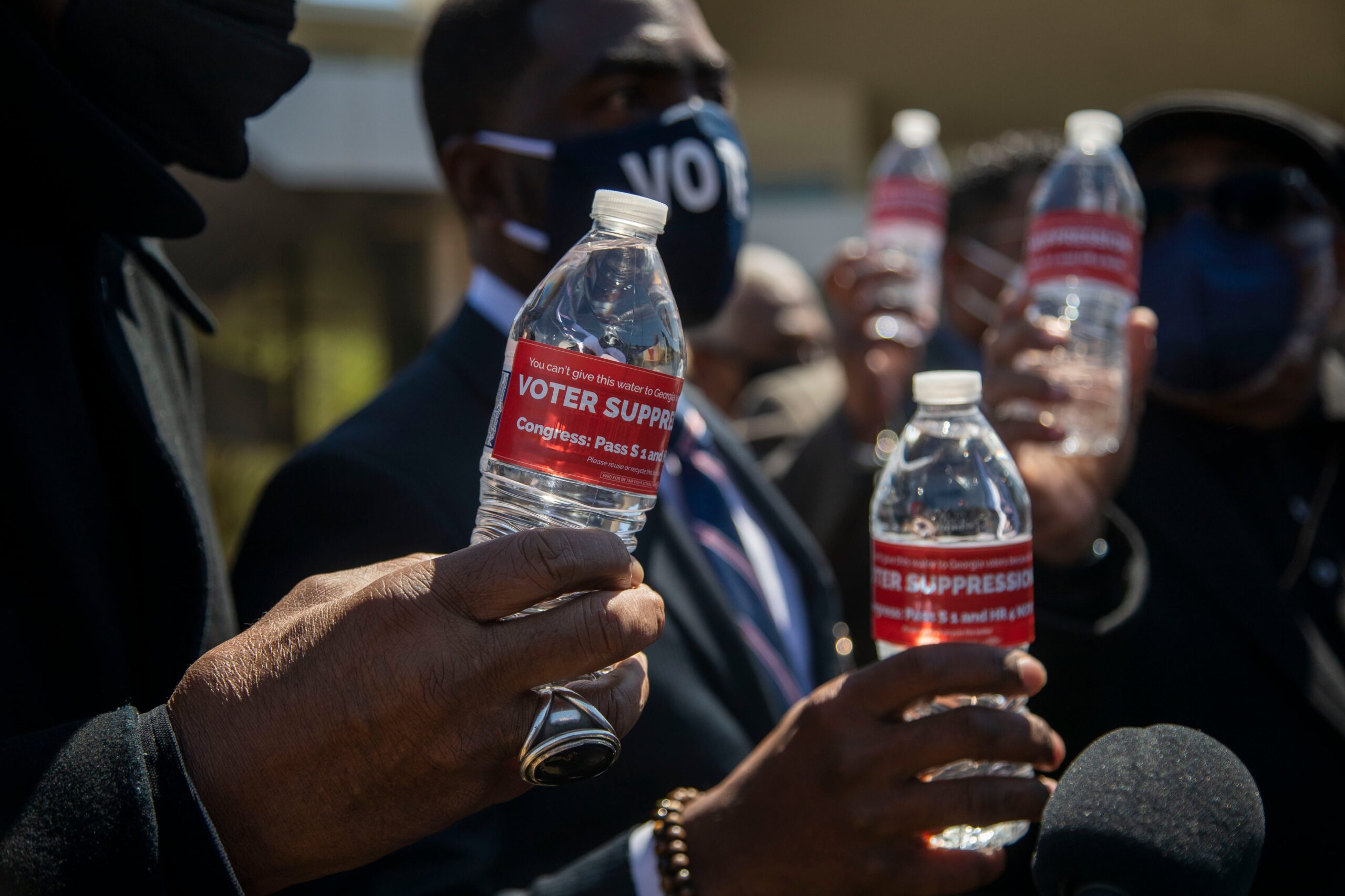The NAACP and a number of voting rights organizations were among the groups that filed a lawsuit against the ban, asking the appeals court to uphold a lower-court decision that blocked it. The ban forbids providing refreshments to any voter standing in a line more than 150 feet from a polling station.
Although serving drinks is a misdemeanor under the law, this has never been enforced.
Judge Timothy Corrigan questioned if serving food and beverages should be permitted as a speech act.
Why isn’t the message that you’re waiting in line to cast your ballot—you may have been waiting for a while—that voting is significant and that we would like to provide you a bottle of water to symbolize that? “Corrigan said.” Why isn’t it sufficient?
A lower court judge halted the law in 2023, but Solicitor General Stephen Petrany, who is representing the state in the appeal, argued the judges they should reinstate it.
Credit: Office of Governor Brian Kemp
Credit: Office of Governor Brian Kemp
According to Petrany, organizations do not have the freedom of expression to give out snacks to voters, as they did during the contentious 2020 election, which resulted in a state law outlawing the practice.
Voting shouldn’t be a combative activity. According to Petrany, we don’t want a boisterous atmosphere to discourage people. Standing in line and being essentially unhindered is what we desire.
Giving out cookies to voters is a type of free speech, according to Davin Rosborough, an attorney for the voting rights organizations.
According to Rosborough, onlookers can understand the plaintiffs’ actions as a sign of solidarity and the value of civic engagement through challenges. The takeaway from this is that my involvement counts.
Average wait times on recent election days have often ranged from two to four minutes, while some voters experienced hours-long queues during the 2020 election and during the busiest early voting hours in subsequent elections.
By restricting ballot drop boxes, tightening absentee ballot deadlines, increasing procedures for requesting an absentee ballot, and enabling activists to contest voters’ eligibility, numerous other provisions of the bill had a more direct effect on voters.
The appeals court is considering U.S. District Judge J.P. Boulee’s injunctions prohibiting the food-and-water prohibition and requiring voters to write their birthdate on absentee ballot envelopes, even though the majority of the voting statute has so far been upheld. According to Boulee, after someone has submitted identifying documentation, like a driver’s license or Social Security number, the birthdate requirement is irrelevant in assessing their eligibility to vote.
Court challenges are still underway in federal court over four years after the bill was passed. Following the inauguration of President Donald Trump earlier this year, the U.S. Department of Justice retracted the Biden administration’s lawsuit against the voting law.
Corrigan and Circuit Judge Kevin Newsom, two nominees of President George W. Bush, as well as Circuit Judge Adalberto Jordan, an appointee of President Barack Obama, make up the appeals court bench.
The case against numerous additional limitations in Georgia’s voting statute may go to a trial if the appeals court renders a decision in the upcoming months.






